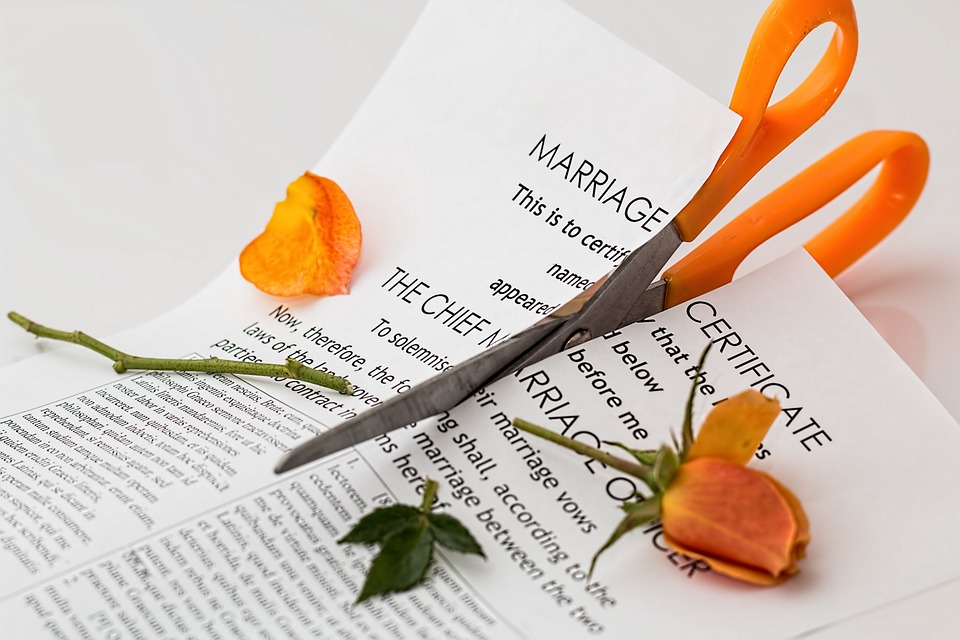Coping with an unfair settlement
Many experience post-divorce settlement shock. The shock may settle in before or after your divorce is final. Between heartbreak, attorney's fees and increased household responsibilities the final settlement is rarely what most divorcees originally anticipated.
Sadness, anger and blame are common emotions that can get in the way of negotiating a settlement. Take them too far and you might end up in court, allowing a judge to determine your fate.
Legal reason why you didn't get an even split
Unfortunately, the problems that are in the way of negotiating a settlement are complicated and personal. Many concessions need to made on both sides to establish the best settlement for years to come. The task should be done in a reasonable time frame and with the least haggling in order to avoid costly legal fees. 'taint easy!
When the settlement or certain terms of a settlement can not be established outside of court, the Final Judgement of Divorce is established by a judge. In certain states (Equitable Distribution States), the judgement will not result in an equal division of assets, even in a no-fault divorce. Instead, the intent is to establish a fair division of debts and assets and in certain circumstances, equal, 50/50 or right down the middle, in the eyes of the court, is not necessarily fair.
After a divorce, most don't feel they got what's fair
Each spouse has his/her own idea of what's fair or equal. When it's all done, most feel they didn't get either.
When fair is not equal or ...fair
It's not uncommon for one party to expect the overall judgement to be established in his/her favor in the interest of fairness, only for it to be established in their former spouse's favor instead. This is a big reason why settling outside of court is a good idea. Sometimes some concessions made early on head off big loss in the judgement.
Divorce is painful and the law confusing
Divorce is a convoluted business, a complicated journey and with a lot of moving parts. The end result has as much chance as being spot on, completely fair and even in the eyes of ALL parties involved as the twelfth of never.
To us common folk, equitable - 50/50, right down the middle and fair should all mean the same thing and regardless which side we're on, none of us feel like we got any of it!
Reasons divorce settlements are difficult to establish
1. The emotions are overwhelming and can overpower your reasonable decision making skills during negotiations and after. So, in the beginning, your emotions may lead to an inability to think objectively about your current and long-term needs. Part of you wants your soon-to-be-ex to give-in based on how much you're suffering (e.g. when couples argue over a worthless piece of furniture that costs $500 in attorneys fees to negotiate) and the other part of you doesn't care because it opens the flood gates of emotions (e.g. when spouses give up the house and take less than half of their marital assets just to get the divorce done).
2. Negotiating a life changing settlement is challenging for anyone. Even if you have a career that provides a great deal of experience in negotiations; dealing with negotiations that personally affect you, can cause you to negotiate poorly or below your normal skill level. If you are not comfortable with negotiating, then you're under a great deal of stress in understanding the legalities, terms and legal consequences of all aspects of the divorce proceedings.
3. Splitting your life apart is not easy. It's never a clean cut. It requires a great deal of consideration for some areas of marriage, family and finances and the ability to maintain objectivity when disregarding others. If you're human, this becomes a very difficult thing to do without coming out of it a little scarred, resentful and shell shocked.
4. Half of your assets are gone. Sometimes more or less, but regardless, after signing the agreement both parties likely have less than when they were married. For most of us, it's quite a bit less. We must now think and decide as an individual, opposed to a couple. We have grown accustom to living with joint assets, incomes and housing. We had two adults to manage the household, family and finances. After a legal separation and divorce, we all have less. No one feels good with less. Yes, we have less of the things that caused our divorce as well. But, less debt and marital discord don't really make us feel better about our situation. It just spearheads the original guilt and shame of our failed marriage which in turn leads to more anger and depression.
In order to get through the stage of "less", you will need to do one of two things.
1. Ask a court to re-open your case. Specific laws of each state vary. It's best to consult a local attorney for guidance. However, generally there needs to be the existence of compelling circumstances to do so.
There needs to be proof that the judgement is deemed invalid - that the enforcement of the terms of the agreement would be oppressive, inequitable and/or unjust.
A motion or petition must be filed and your application would include the following:
- -Deceit or fraud
- -Duress or undue influence
- -Mistake about a material fact affecting the agreement
- -Fundamental inequity or unfairness in the agreement
Again, due to the complexities of re-opening your case, it is best to consult with a local attorney who can advise you based on the laws of your states as well as your current circumstances and judgement.
2. Accept and let go.
We aren't all born with the same great bodies, brains, parents and opportunities. Some of us work harder in the gym, at school, work and home to get ahead. We know that the idea that "life isn't fair" won't make things happen or improve our life or opportunities. The same is true in divorce, the sooner we let go of "it isn't fair", the sooner we can get to our "rebirth" per se'. ...or we can wallow in the fiery depths of hell and wonder why it's hot. Uhm. Ya. Let's not.![]()
![]()
You don't need to accept it as "a fair settlement/judgement". It probably wasn't. But, the longer you take from your life, looking back at what wasn't fair, the more it takes from you.
You need to acknowledge that some things in life aren't right and will never be right regardless if it could be avoided or handled differently. Sometimes bad things happen to really good people.
The lesson here is to not let these bad things control your life or potential. It may hold you back a bit, but don't let it keep you there. If it takes too much of your life, then it becomes a part of it and that's when you really get an unfair settlement.



 How to resolve AdBlock issue?
How to resolve AdBlock issue?